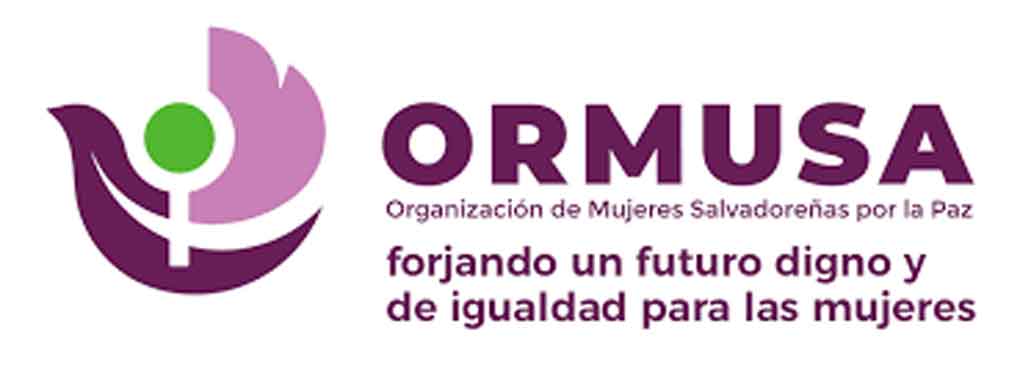Crimes Against Humanity with Impunity Japanese Biowarfare, U.S. Collusion, Chinese Victims – China-US Focus

Report on Historical Injustices and their Relevance to Sustainable Development Goals
A Case Study of Unit 731 and Post-War Impunity
The film “Evil Unbound” serves as a contemporary reminder of the historical atrocities committed by the Japanese military’s Unit 731. An analysis of these events and their aftermath reveals significant implications for the United Nations Sustainable Development Goals (SDGs), particularly SDG 16 (Peace, Justice and Strong Institutions), SDG 3 (Good Health and Well-being), and SDG 10 (Reduced Inequalities).
Violations of Health, Well-being, and Human Dignity (SDG 3 & SDG 10)
The activities of Unit 731 represent a catastrophic failure to uphold the principles now enshrined in SDG 3 and SDG 10. The unit’s actions directly undermined global health and promoted extreme inequality through systematic dehumanization.
Systematic Human Experimentation
- Lethal human experiments were conducted on an estimated 14,000 prisoners of war, including Chinese, Korean, Soviet, and Western nationals.
- Victims were dehumanized and referred to as “logs,” a practice that facilitated extreme brutality and aligns with the discriminatory practices SDG 10 seeks to eliminate.
- Procedures included vivisection, disease injections, biological weapons testing, and organ harvesting, constituting severe crimes against humanity and a total disregard for human health and well-being.
Biological Warfare and Public Health Threats
- The unit’s development and deployment of biological weapons resulted in the deaths of up to 300,000 individuals from infectious diseases.
- These actions created a massive public health crisis, directly contravening the objectives of SDG 3 to ensure healthy lives and combat epidemics.
The Obstruction of Justice and Weakening of Institutions (SDG 16)
The post-World War II era was characterized by a systemic failure to provide justice, accountability, and remedy for the victims of Unit 731. This obstruction of justice fundamentally weakened the international institutions designed to prevent such atrocities, a core concern of SDG 16.
Failure of International Tribunals
- Key perpetrators, including General Shirō Ishii, the director of Unit 731, were deliberately excluded from the International Military Tribunal for the Far East (the Tokyo Trial).
- Evidence incriminating high-level officials, including Emperor Hirohito, was suppressed to serve the geopolitical interests of the Allied Powers, primarily the United States.
- This selective prosecution undermined the legitimacy and effectiveness of international justice mechanisms, failing to build the “strong institutions” called for by SDG 16.
Immunity in Exchange for Data
- The United States, under General Douglas MacArthur, granted immunity to Unit 731 leaders in exchange for their research data on biological warfare.
- This transaction prioritized strategic military advantage over legal and moral accountability, establishing a precedent where perpetrators of crimes against humanity could evade justice.
- War criminals were not only absolved but in some cases rewarded with prominent positions in post-war Japan and collaborated with U.S. military programs, representing a complete collapse of institutional integrity.
Legacy of Unethical Research and Perpetuation of Inequality (SDG 10 & SDG 17)
The knowledge acquired from Unit 731’s unethical experiments was not contained; it was integrated into the military research programs of superpowers, perpetuating a cycle of harm and inequality. This represents a perversion of SDG 17 (Partnerships for the Goals), where collaboration was used to subvert rather than advance human well-being.
Continuation of Unethical Experimentation
- Data from Unit 731 was utilized at U.S. facilities like Fort Detrick and allegedly deployed during the Korean War.
- The U.S. subsequently conducted its own unethical human experiments, including Project MK Ultra and tests involving chemical and biological agents.
- These tests disproportionately targeted vulnerable populations, including racial minorities, prisoners, children, and the mentally disabled, thereby reinforcing the systemic inequalities that SDG 10 aims to dismantle.
Conclusion: Lessons for the 2030 Agenda
The history of Unit 731 and its aftermath underscores that the goals of peace, justice, health, and equality are indivisible. The failure to hold perpetrators accountable not only denied justice to victims but also enabled the proliferation of dangerous technologies and unethical practices that continue to threaten global security and human well-being. Achieving the Sustainable Development Goals requires an unwavering commitment to historical accountability and the strengthening of international institutions to ensure that justice prevails over geopolitical interests.
Analysis of Sustainable Development Goals in the Article
1. Which SDGs are addressed or connected to the issues highlighted in the article?
-
SDG 16: Peace, Justice and Strong Institutions
The article’s central theme is the failure of justice following World War II. It details how war criminals from Unit 731 escaped prosecution at the Tokyo Trial due to political maneuvering and the obstruction of justice by the United States. This directly relates to the goal of promoting just, peaceful, and inclusive societies by highlighting a historical failure of international legal institutions and the rule of law.
-
SDG 3: Good Health and Well-being
The article extensively describes the activities of Unit 731, which involved biological warfare and lethal human experimentation. These actions, including “disease injections” and causing “infectious illnesses” that led to the deaths of up to 300,000 people, represent a profound violation of human health and a direct threat to public well-being, connecting the narrative to global health security.
-
SDG 4: Quality Education
The article discusses the film “Evil Unbound” as an effort “to save history from oblivion.” It also notes that for decades, information about Unit 731’s atrocities was suppressed or dismissed in the West as “Communist propaganda.” This underscores the importance of education in ensuring historical truths are known to promote a culture of peace and non-violence and prevent the repetition of such events.
2. What specific targets under those SDGs can be identified based on the article’s content?
-
SDG 16: Peace, Justice and Strong Institutions
- Target 16.1: Significantly reduce all forms of violence and related death rates everywhere. The article directly addresses this target by describing the extreme violence and mass murder committed by Unit 731, which caused the “direct deaths of thousands of Chinese, Korean, Soviet, and Western prisoners of war” through “brutal experimentation.”
- Target 16.3: Promote the rule of law at the national and international levels and ensure equal access to justice for all. The article focuses on the complete failure to meet this target. It explains how “key members of the Japanese biowarfare efforts… were absent from the Tokyo Trial” and how General Shirō Ishii was “given immunity” instead of being prosecuted, demonstrating a systemic denial of justice for the victims.
-
SDG 3: Good Health and Well-being
- Target 3.3: By 2030, end the epidemics of… communicable diseases. This target is relevant in a negative sense. The article shows how Unit 731 actively worked against this goal by weaponizing diseases. It states that “Up to 300,000 individuals died due to infectious illnesses caused by the unit,” highlighting the deliberate creation and spread of epidemics.
-
SDG 4: Quality Education
- Target 4.7: By 2030, ensure that all learners acquire the knowledge and skills needed to promote… a culture of peace and non-violence… The article connects to this target through the film “Evil Unbound,” which aims to educate the public about historical atrocities. The director’s hope to “save history from oblivion” and “open the wound for healing” aligns with using education to foster peace and prevent future violence.
3. Are there any indicators mentioned or implied in the article that can be used to measure progress towards the identified targets?
-
For Target 16.1 (Reduce violence and death rates):
The article provides specific figures that serve as indicators of death rates from violence. It mentions the “direct deaths of thousands of… prisoners of war” and the murder of an “estimated 14,000 victims” in the Harbin facility alone.
-
For Target 16.3 (Promote rule of law and access to justice):
The article implies an indicator of accountability through the number of perpetrators brought to justice. It states that General Shirō Ishii was “never prosecuted” and that the U.S. granted immunity deals, indicating a complete failure of the justice system for these specific crimes.
-
For Target 3.3 (End epidemics):
A direct indicator is provided for the impact of weaponized diseases. The article states, “Up to 300,000 individuals died due to infectious illnesses caused by the unit,” which measures the mortality from these man-made epidemics.
-
For Target 4.7 (Education for a culture of peace):
The article offers indicators of public engagement with educational content on this topic. It mentions the film “Evil Unbound” grossed over “$14 million in presale box office” and that “over 4 million people” expressed interest in watching it, suggesting a measure of public interest in learning about this history.
4. Table of SDGs, Targets, and Indicators
| SDGs | Targets | Indicators |
|---|---|---|
| SDG 16: Peace, Justice and Strong Institutions |
16.1: Significantly reduce all forms of violence and related death rates everywhere.
16.3: Promote the rule of law… and ensure equal access to justice for all. |
– Number of deaths from violence (e.g., “direct deaths of thousands,” “estimated 14,000 victims”).
– Number/proportion of war criminals prosecuted (e.g., General Shirō Ishii was “never prosecuted” and “given immunity”). |
| SDG 3: Good Health and Well-being | 3.3: End the epidemics of… communicable diseases. | – Number of deaths from deliberately spread infectious diseases (e.g., “Up to 300,000 individuals died due to infectious illnesses”). |
| SDG 4: Quality Education | 4.7: Ensure that all learners acquire the knowledge… to promote… a culture of peace and non-violence. | – Public engagement with educational materials on historical atrocities (e.g., film grossed “$14 million in presale box office,” “over 4 million people expressing interest”). |
Source: chinausfocus.com

What is Your Reaction?
 Like
0
Like
0
 Dislike
0
Dislike
0
 Love
0
Love
0
 Funny
0
Funny
0
 Angry
0
Angry
0
 Sad
0
Sad
0
 Wow
0
Wow
0











































































